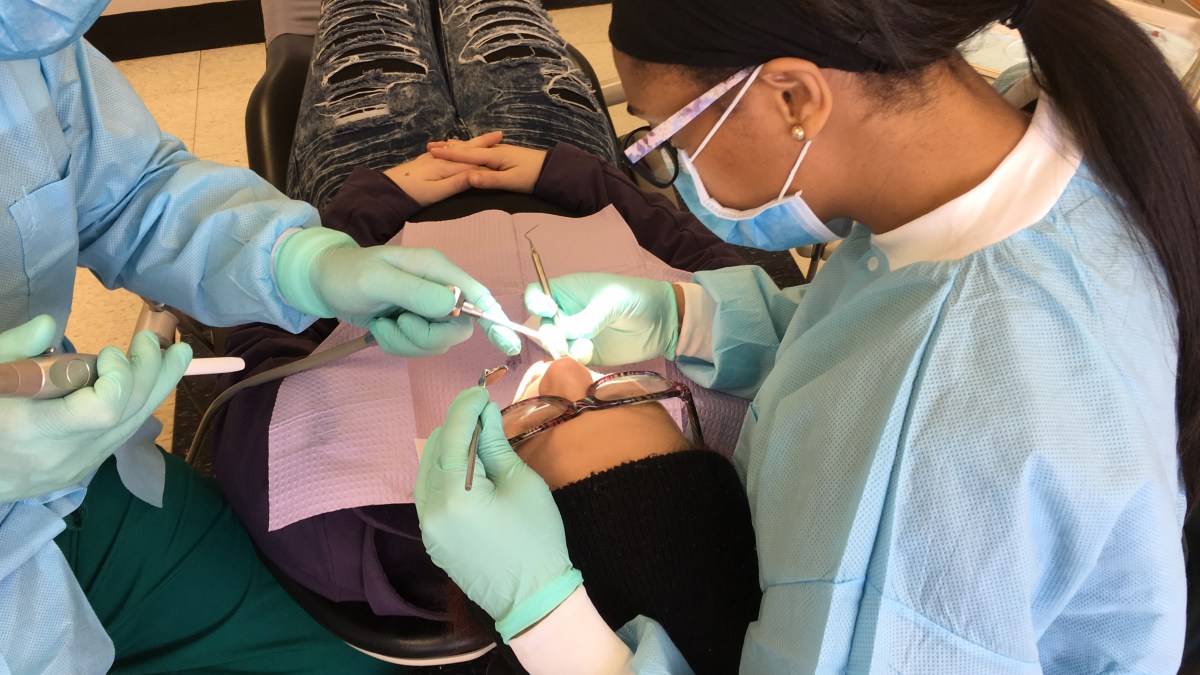There’s rising recognition, even amongst states that present restricted Medicaid advantages, that poor oral well being contributes to a broad vary of persistent issues, from melancholy and diabetes to unemployment.
“In case you don’t have an excellent smile, you oftentimes don’t have a job,” mentioned Dr. Lisa Piercey, who leads the Tennessee Division of Well being.
Extra states have added dental advantages to their Medicaid protection for low-income residents in recent times. Idaho began protection in 2018 and Delaware started in late 2020. However Tennessee and Alabama don’t present dental protection to adults — not even for painful emergencies.
Now Tennessee’s Republican governor, Invoice Lee, who has resisted utilizing federal cash for Medicaid protection underneath Obamacare, has proposed increasing dental advantages to all adults on Medicaid. The brand new protection would lengthen to greater than 600,000 individuals at roughly $75 million a yr, in keeping with Stephen Smith, director of Tennessee’s Medicaid program, often called TennCare.
State lawmakers nonetheless should log out on the plan, so leaders are pitching the dental protection as a means to enhance total well being and presumably get monetary savings from decreasing different kinds of costly remedy.
“We additionally know that now we have a whole lot of visits to the emergency room,” Smith mentioned.
The state spent $10 million in 2019 on sufferers exhibiting as much as the hospital due to tooth ache or one other oral well being disaster, Smith mentioned. Many occasions, hospitals can solely supply ache treatment — often, with opioids.
However including so many new sufferers directly presents a workforce drawback.
The dentist scarcity touches just about each state, in keeping with monitoring by the Kaiser Household Basis. However it’s largely a rural difficulty, with roughly 60% of the scarcity areas in rural communities.
Dentists tackle a lot debt in class — now, greater than $300,000 on common — that it may be laborious for them to justify establishing store in a small city with fewer insured sufferers round. Many choose to be within the suburbs the place extra individuals have personal insurance coverage.
To compensate, Tennessee plans to pump almost $100 million into the state’s two dental colleges over 5 years to allow them to develop class sizes and supply to repay pupil loans for many who go to high-need areas.
Dentists helped craft the plan and are typically supportive. However Dr. Jeannie Beauchamp, the president of the American Academy of Pediatric Dentistry and a dentist in Clarksville, Tennessee, mentioned the low charge of reimbursement from Medicaid sufferers nonetheless must be resolved.
“You might not have a follow that you’ve greater than 35%, 40% of your sufferers … Medicaid sufferers … you’d go broke,” she mentioned.
So some new dentists might not keep lengthy in these rural communities and discover their means again to the suburbs if Medicaid funds don’t improve, she mentioned. However there’s recognition that low reimbursement charges are a part of the issue, so Tennessee leaders are additionally attempting to boost what Medicaid pays dentists for doing the work.

